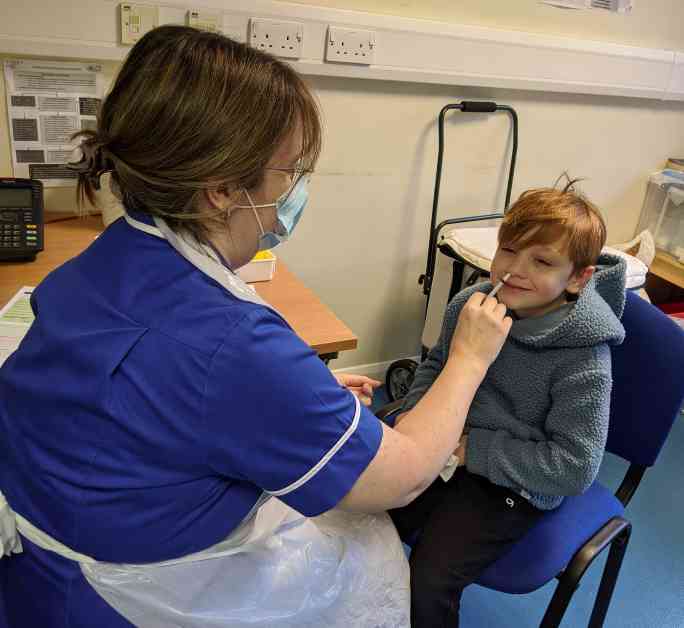Why Flu Vaccines are Urged for Parents and Carers of 2-3 Year Olds
As the winter season approaches, health authorities are urging parents and carers of two and three-year-olds in the north-west to prioritize getting their children vaccinated against the flu. With over 150,000 individuals falling into this category, the National Health Service (NHS) is working diligently to ensure that these young ones are protected from the potentially severe effects of the influenza virus.
The NHS has already commenced its vaccination campaign, starting with pregnant women and school children, and is now extending the invitation to parents and carers of toddlers. It is crucial for eligible individuals to heed this call and proactively seek out the flu vaccine to fortify their immunity in preparation for the colder months ahead. This proactive approach is vital because immunity wanes over time, and the flu virus mutates annually, necessitating updated protection.
The administration of the flu vaccine to children aged two to three is typically a simple and painless process involving a nasal spray, eliminating the need for injections for most. However, for children with allergies to porcine gelatine, an alternative injected flu vaccine is available. This preventative measure is especially important as the flu season peaks in December and January, coinciding with increased indoor gatherings and heightened virus transmission rates.
Tricia Spedding, the regional head of public health for NHS England North West, emphasizes the importance of safeguarding young children from the flu virus during the winter months. She highlights that the flu vaccine offers the best defense against contracting and spreading the illness, ultimately reducing the burden on healthcare facilities and preventing serious complications that may lead to hospitalization.
Expanding Eligibility and Access to Flu Vaccines
In addition to parents and carers of two to three-year-olds, various other groups are eligible for the flu vaccine to ensure a comprehensive approach to winter illness prevention. Pregnant women, primary and secondary school children, and those in clinical risk groups aged six months to less than 18 years are among those eligible for vaccination from September 1.
Starting from October 3, the eligibility criteria will expand to include individuals aged 65 and over, those in clinical risk groups aged 18 to under 65, residents of long-stay care homes, carers receiving carer’s allowance, and close contacts of immunocompromised individuals. Frontline workers in social care settings will also be eligible for the vaccine, encompassing a broad spectrum of individuals at risk of flu-related complications.
The availability of online bookings for flu and COVID-19 vaccinations from October 3 aims to streamline the process and facilitate access for eligible individuals. This proactive approach to vaccination scheduling underscores the importance of early intervention to build immunity and protect vulnerable populations during the peak winter months.
The Impact of Flu Vaccination on Public Health
The significance of flu vaccination extends beyond individual protection to encompass broader public health benefits. By reducing the prevalence of flu cases, vaccination efforts contribute to alleviating the strain on healthcare systems and minimizing the burden on hospitals during the demanding winter season.
Data from previous flu seasons underscore the potential impact of widespread vaccination campaigns in mitigating the spread of the virus and reducing hospitalizations. During the peak of winter flu cases last year, England witnessed a substantial increase in flu-related hospitalizations, underscoring the importance of preemptive vaccination strategies to curb disease transmission.
As the flu vaccine remains a cornerstone of preventive healthcare, health authorities are urging eligible individuals to proactively engage with vaccination programs to bolster community immunity and safeguard vulnerable populations. By leveraging the protective benefits of vaccination, individuals can play a proactive role in safeguarding public health and minimizing the impact of seasonal illnesses.
In conclusion, the flu vaccine is a crucial preventive measure that offers protection against the potentially severe effects of the influenza virus. By prioritizing flu vaccination for young children, pregnant women, and other eligible groups, individuals can fortify their immunity and contribute to the collective effort to combat winter illnesses. Embracing vaccination as a proactive health strategy is paramount in safeguarding public health and minimizing the impact of seasonal flu outbreaks.




















